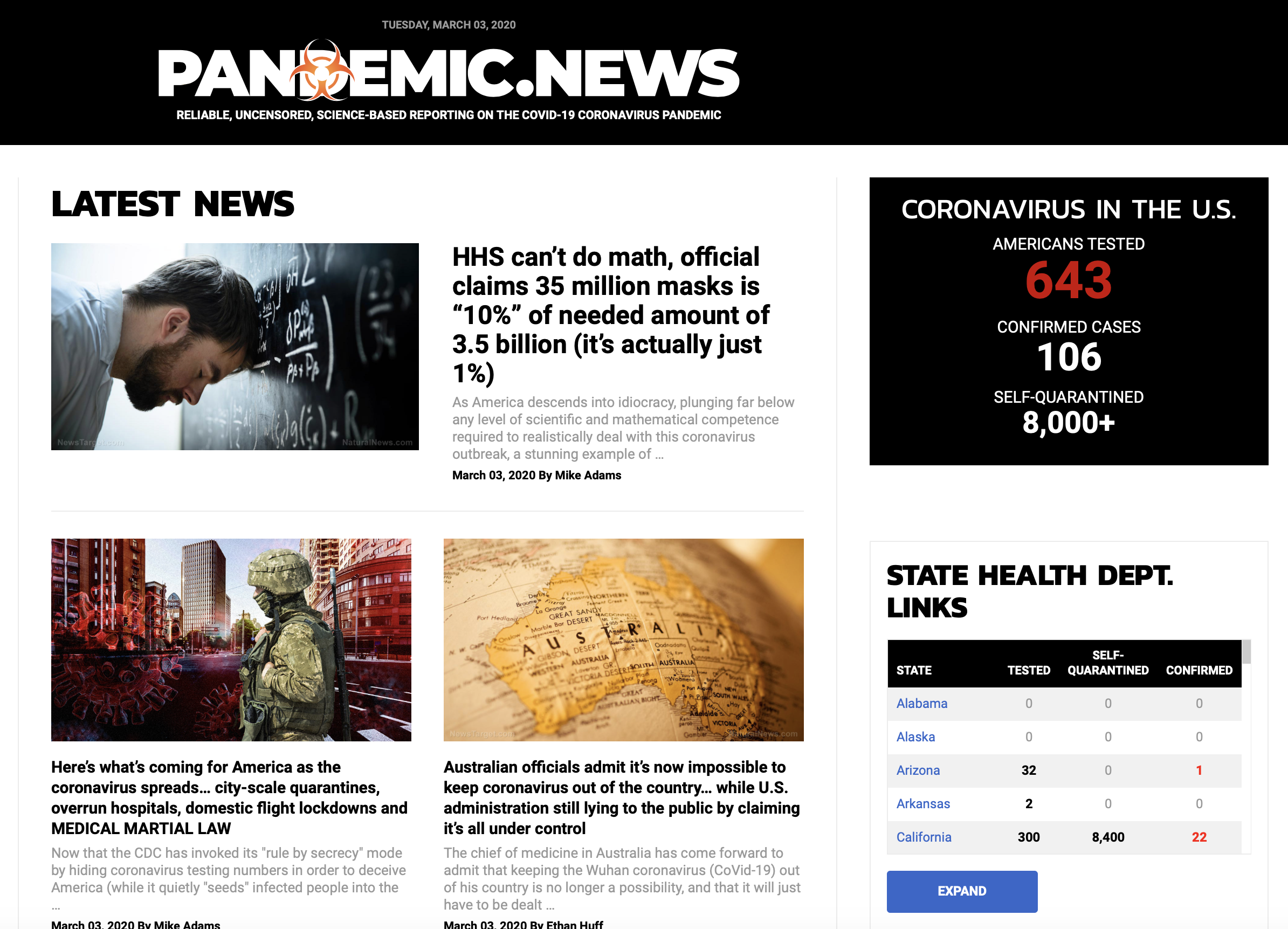Your cart is currently empty!

Coronavirus Misinformation
You can’t believe everything you read, and that is certainly true on the internet. Some studies have found that more than half of the health information available on the internet is false. Right now, the World Health Organization is concerned that we’re facing a pandemic of coronavirus misinformation. The State Department is worried about it, too. Stat has identified a large number of websites with false information and very aggressive social media — these websites appear to be intentionally sharing misinformation.
Why publish misinformation?
There are some who sincerely believe things that are not true, and want to share the information for the same reasons people want to share true information. We have certainly seen that people are easily deceived by false claims. But there are plenty of bad actors out there, too. At this point, just implying something scary about coronavirus can give you some effective clickbait.

Check out this image from a video on coronavirus in Puerto Rico, which is an island. There have been no confirmed cases of COVID-19 in Puerto Rico, and the governor has announced sensible precautions. But this graphic says, “No Mention of Coronavirus Preparedness on Department of Health Website.” Combined with the visuals, this clearly implies that Puerto Rico is unprepared for the looming threat of a deadly virus.
Chances are good that more people will click through to watch this video than they would if the graphic said, “No cases of coronavirus in Puerto Rico.”
Websites that monetize with ads not only get more money if they have more visitors who interact with their ads, but they also get more ads if they can claim more traffic. Just getting eyeballs on their website pays off.
Solutions
Google and the major social media platforms are making efforts to stave off the misinformation with ready access to accurate information.

You can do the same. By offering your patients accurate information at your website — a source they know and trust — you make it less likely that they will be convinced by the false information.
by
Tags:

Leave a Reply